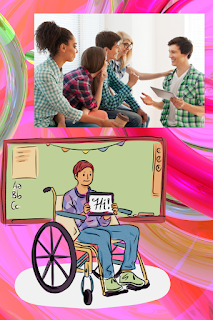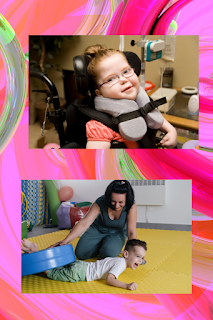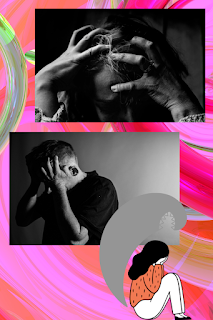So your child has cp and is mentally struggling:
With this in mind, you're gonna have to think about how things are with your child and cerebral palsy. Want to ensure that the child themselves is happy and well adjusted to the environment and people around them. If this is not done then the child could develop depression at a very early age due to the lack of knowledge for themselves about their own condition and why people are treating them differently.
Equality in the home:
Whilst doing everything possible for the educational and physical side of the person with the condition cerebral palsy, people often forget the mental-emotional side of the condition. Because of this, it can be seen as just a physical condition that doesn't initially change yet when older secondary problems occur. It should be acknowledged that equality in the home must be done both ways, not just treating the child as a normal child without any condition. But remembering that they also do have a condition and the emotional side of things can take their toll. Meaning praising a child enough to gain confidence and independence as much as possible. While also realising that they do need help in all parts of life even at this early age.
Explaining cerebral palsy to the child:
So is the child able to do things and seem happy about what they're doing? Or do you see the child struggling and having frustration and unable to say exactly what they want or do? If this is the case, this is when cerebral palsy can start the emotional roller coaster.
Several things can be done to help the situation along in the early stages. Explaining to the child that they are different to a certain extent but they are capable of doing things although differently from everyone else. So this might be walking, talking or just moving around in one place. As I have written before, there are many different types of cerebral palsy.
And depression can be of different strengths as well.
It is at this point that it is the easiest to connect to the port of call to help guide the child through the difficult times ahead. It was thought not so long ago that dealing with social services and medical professionals is a no-no. However, now it is known that actually, it is best to start early to stop any mental illness from becoming very severe. Therefore, having cerebral palsy and mood swings with frustration because of the condition can help both sides of the equation. Because both sides are learning at the same point, although some should be known more now than it was in the past. However, there are still people in the medical profession who don't know or understand the condition. Therefore they would not know how to deal with the emotional distress and frustration from the patient's point of view. It is at this point that you really start to push for all access areas in the person's life because more knowledge is known of cerebral palsy in childhood. Yet the medical profession does not know the emotional side of things.
This is why I mention both sides are learning. Talking to other members of the family and friends and explaining what is needed from them emotionally because they may see the condition and not the person. Some see it the other way around too.
The medical professionals:
Some of the medical professionals who can help you are listed below here in the UK:
General practitioner
Social worker
Consultant
Some charities can help. those are listed below:
Mind
Childline
Carers support groups
Scope
Facebook groups
Seeing the struggle and feeling frustrated.
This is where you will feel like it could be a double-edged sword. Yes, you are a parent or guardian of a child who is different enough for you to struggle mentally yourself. So use those places to help you deal with things as they come along as well. Except for childline. Remembering that the child is not to blame for how they were born differently is an important thing to keep in mind as they will feed emotionally off those feelings and that can also trigger depression.
Giving independence
If the child can do things then let them. It will give them a sense of independence, self-worth and much more. Also, remember though that things will take longer for them to do. So if you are going out in a bit of a rush then try to remember that they will take longer to do the thing you asked. It might be easier at those times to do the things that need to be done quickly. Also, remember that in the long run that the child's body will eventually wear out quicker than the average person.
Final thoughts:
Remember that a child is a person who is human and has their own thoughts and dreams so listen to the child and aim for it within their own limitations. So be mindful of how things are said and done. I know it's not easy but do try.

















